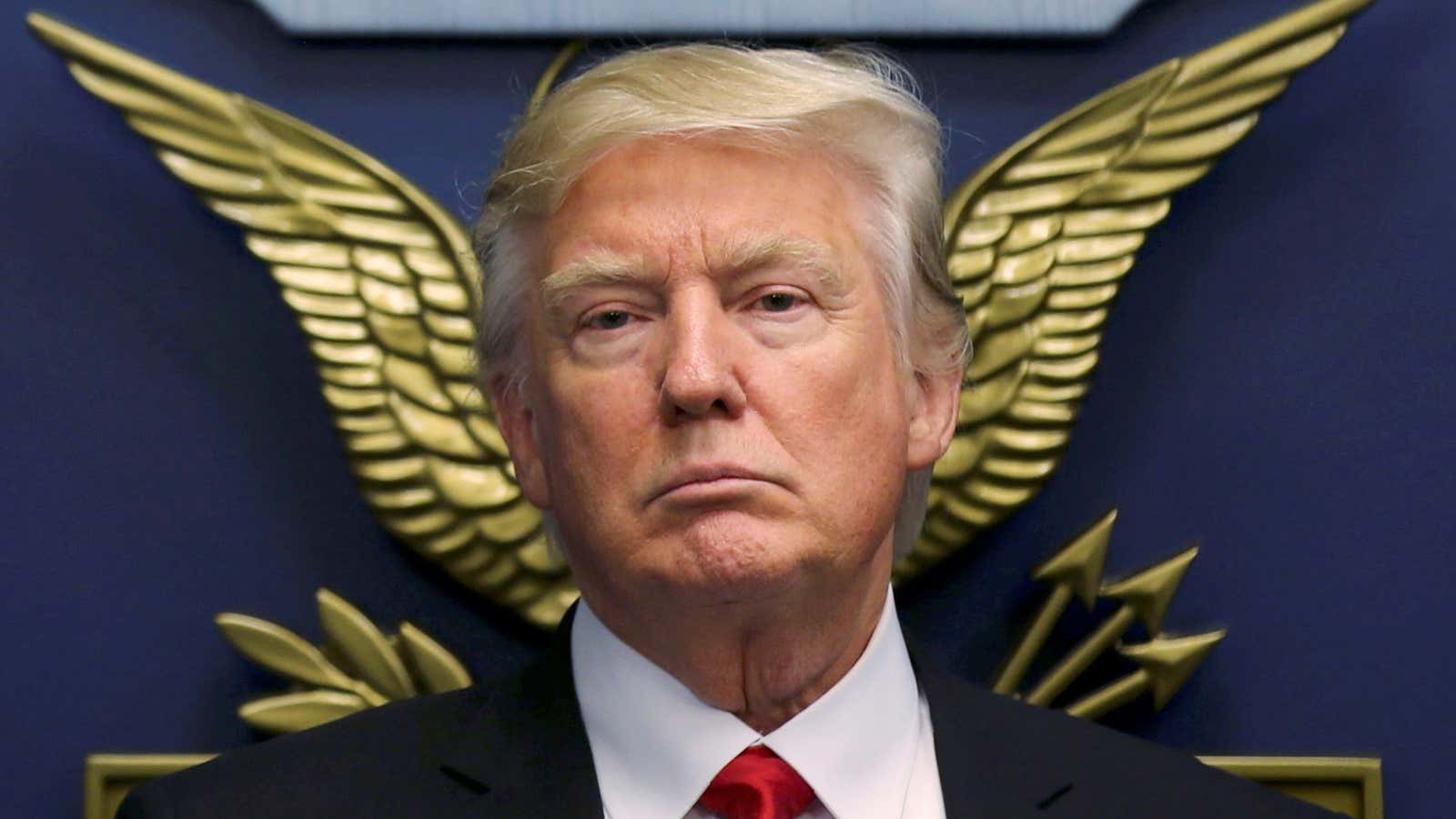Through a mix of arms deals, proposed budget cuts and an attempted travel ban, US president Donald Trump’s first 100 days in office have had an impact on Africa.
Within days of taking office, Trump signed an executive order on immigration that barred citizens of seven Muslim-majority countries from entering the US for 90 days and banning the admission of refugees for 120 days. Three African countries—Sudan, Libya, and Somalia—were targeted sparking uncertainty and protests, and leaving refugees waiting for resettlement in a state of despair. Across American airports, travelers were detained for hours, sometimes with their children, and held with no access to lawyers or food. (The order has since been blocked in US courts.)
In March, the Trump administration prohibited passengers traveling from several airports in the Middle East and North Africa from bringing laptops and tablets on board. Egypt Air and Royal Air Maroc, which both fly from Cairo and Casablanca directly to the US, were among the big carriers affected.
Since winning election, Trump has spoken to leaders of some of the most prominent African nations. In November, Trump spoke with Egypt’s president Abdel Fattah al-Sisi. According to some reports, Sisi was the first Arab leader to congratulate Trump on his victory. In February, Trump spoke to presidents Muhammadu Buhari of Nigeria and and Jacob Zuma of South Africa. While commending Buhari’s fight against a Boko Haram-led insurgency, Trump also signaled a shift in US policy on selling weapons to Nigeria. Under Barack Obama, the spotty human rights record of Nigeria’s army was a stumbling block to such deals. But Trump quickly approved the sale of high-tech aircraft to Nigeria.
Trump also called the president of Tunisia, Beji Caid Essebsi, to talk about the North African country’s democratic transition and counterterrorism partnership. A call to Kenya’s president Uhuru Kenyatta followed in March, with both leaders talking “economic partnership” and a “mutual dedication” to fight terrorism in East Africa. Again, Trump backed up his words with action as, for the first time since American forces withdrew from Somalia in 1994, Trump deployed dozens of American soldiers to help train and equip the Somali army. The move is considered a signal of the intent of Trump’s commitment to fighting al-Shabaab in the region.
The move was in contrast to Trump’s position prior to taking office. His transition team initially showed skepticism about US military engagement in Africa. In a query to the US State Department, the Trump team questioned why the US was “bothering” to fight Boko Haram insurgents in Nigeria and questioned why it has yet to defeat al-Shabaab in Somalia.
While he’s been pro-military, Trump has been anti-aid. His first proposed budget was a major boost for the American military, but cut down funds for medical research, public housing, arts, and humanities programs. In Africa, the budget cuts are expected to affect humanitarian aid and put into question the American government’s role in supporting costly UN peacekeeping operations.
The slash in US funds comes at a time when millions across the continent face basic challenges to their survival, including those hit by famine in South Sudan. The Trump administration also aims to eliminate executive agencies like the US African Development Foundation, and put a halt to the millions of dollars aimed at supporting family planning and health programs.
